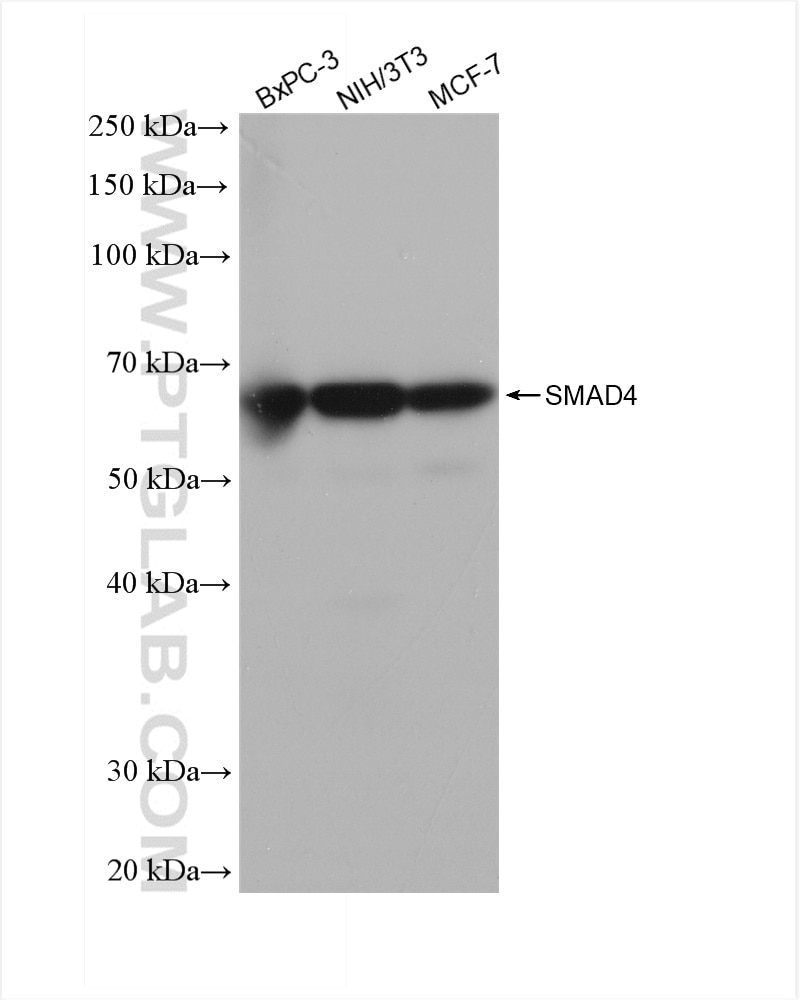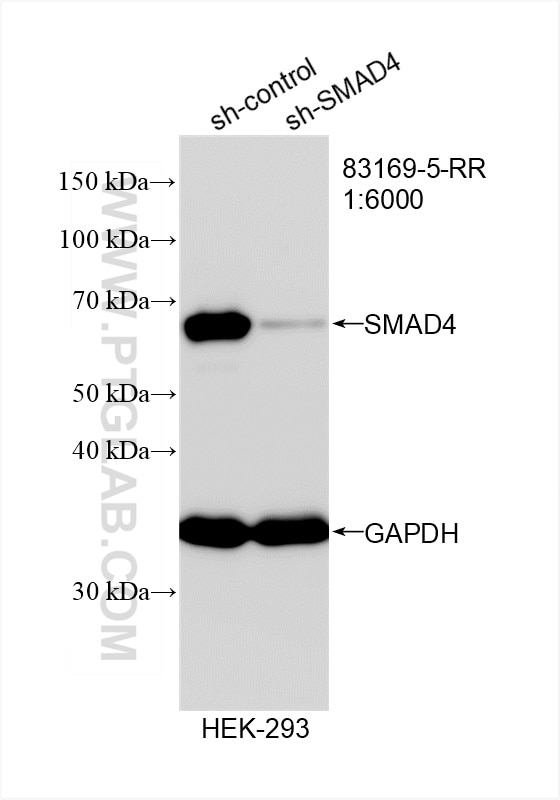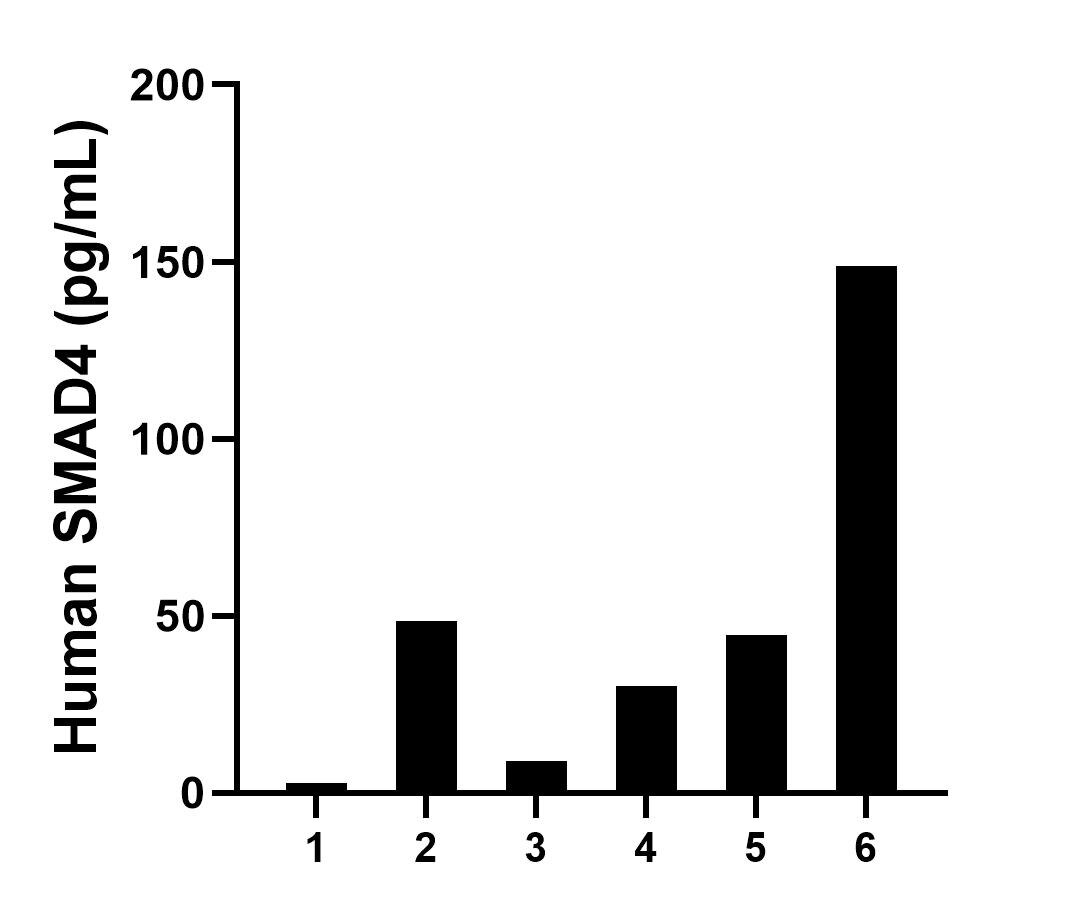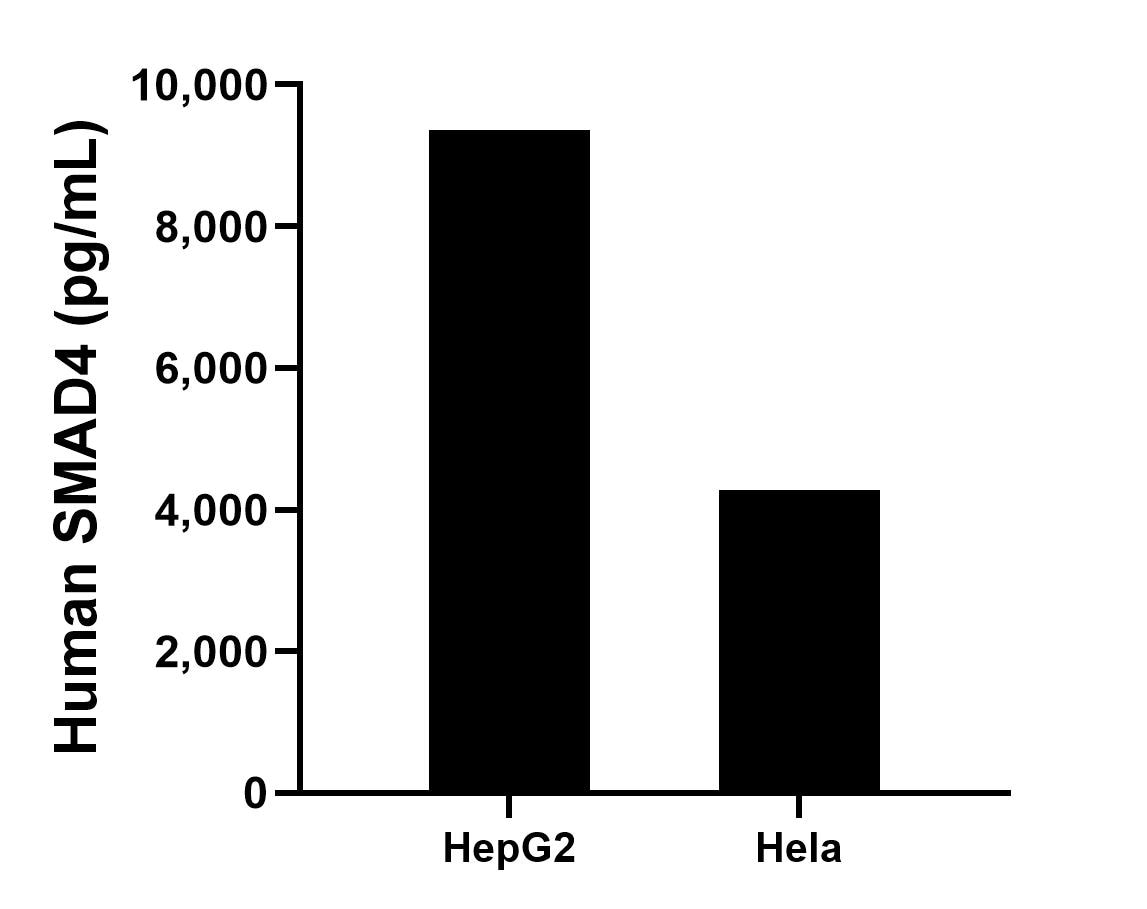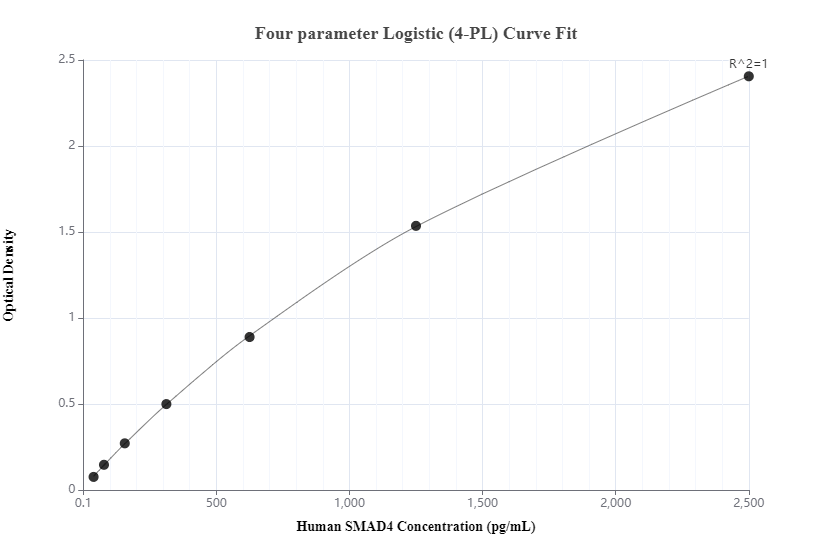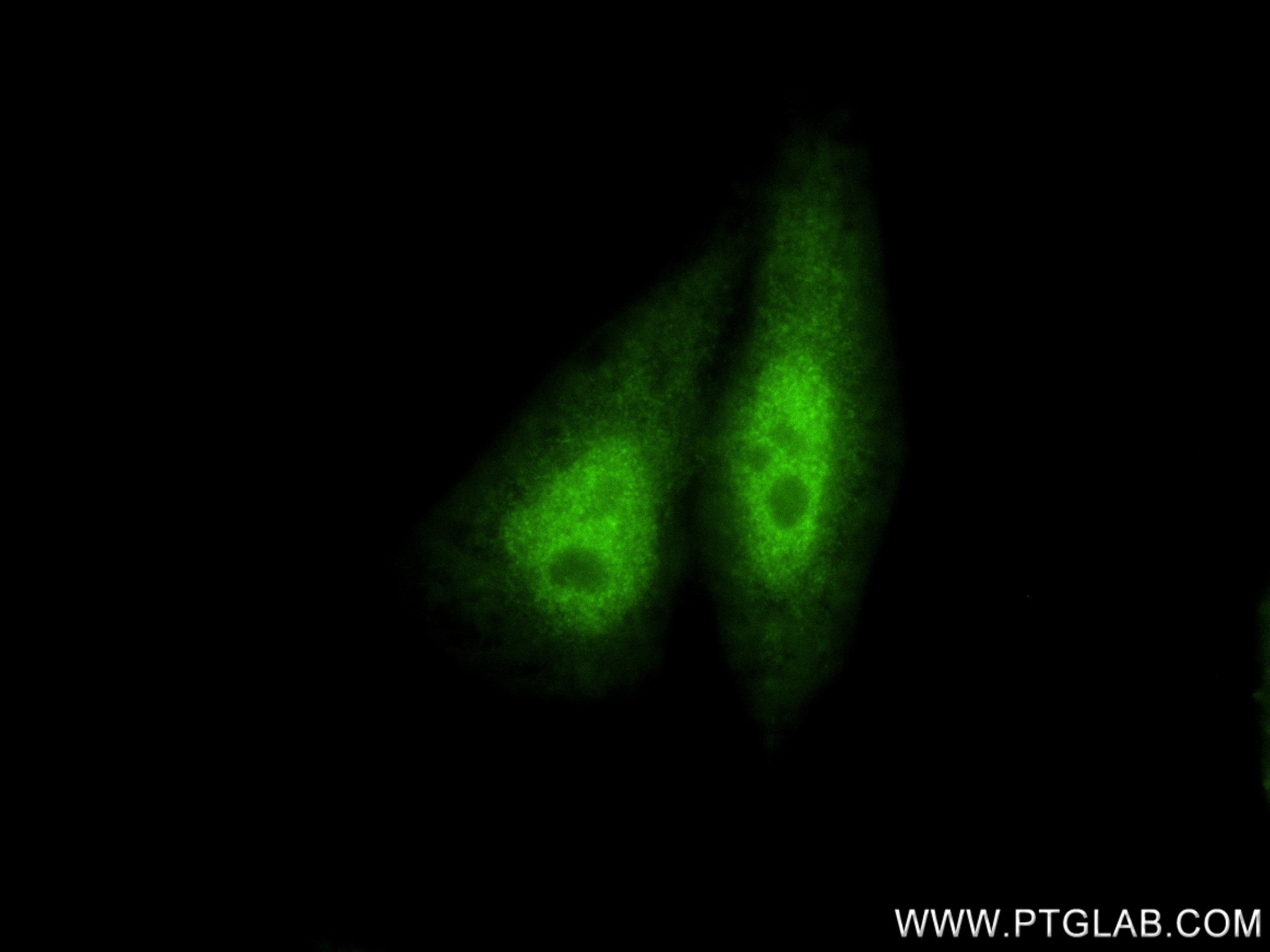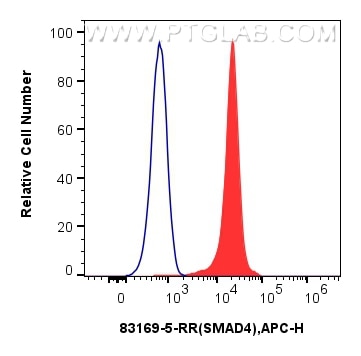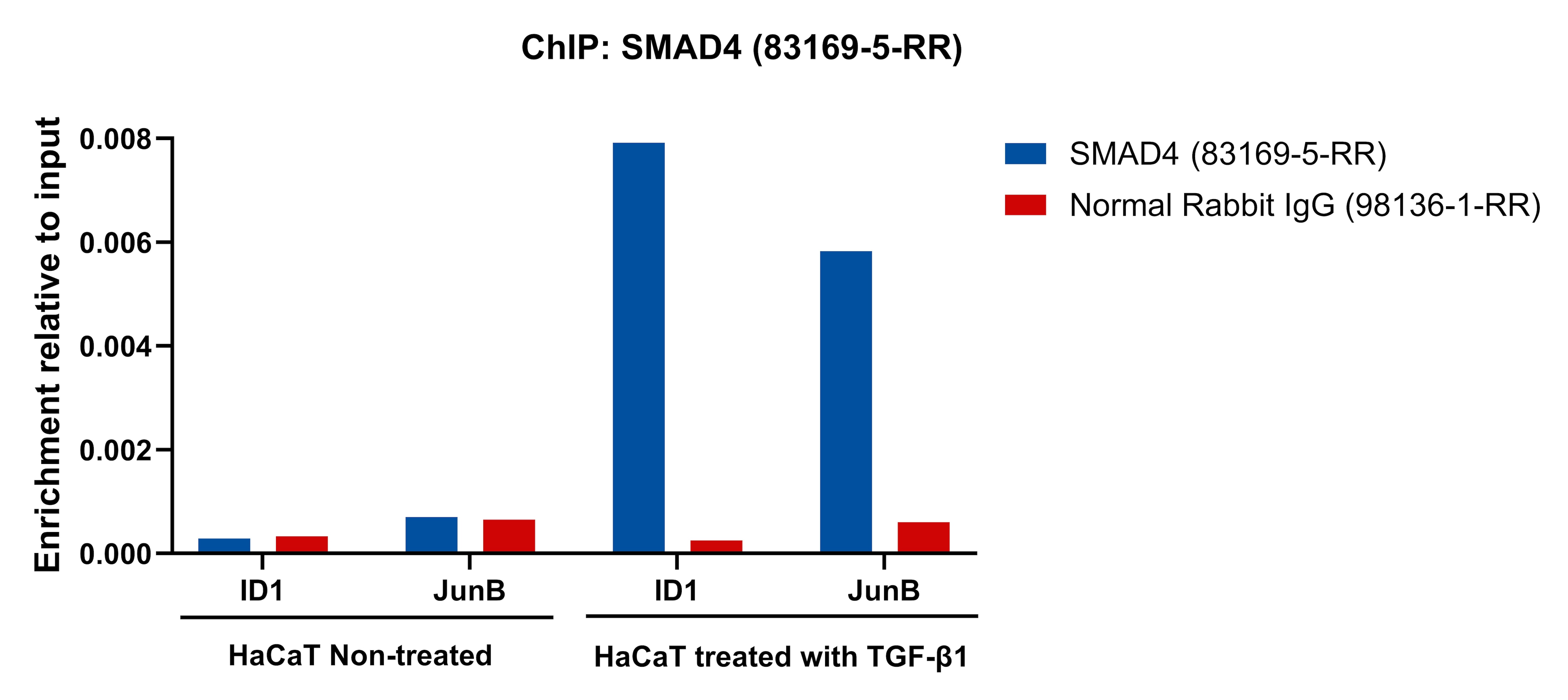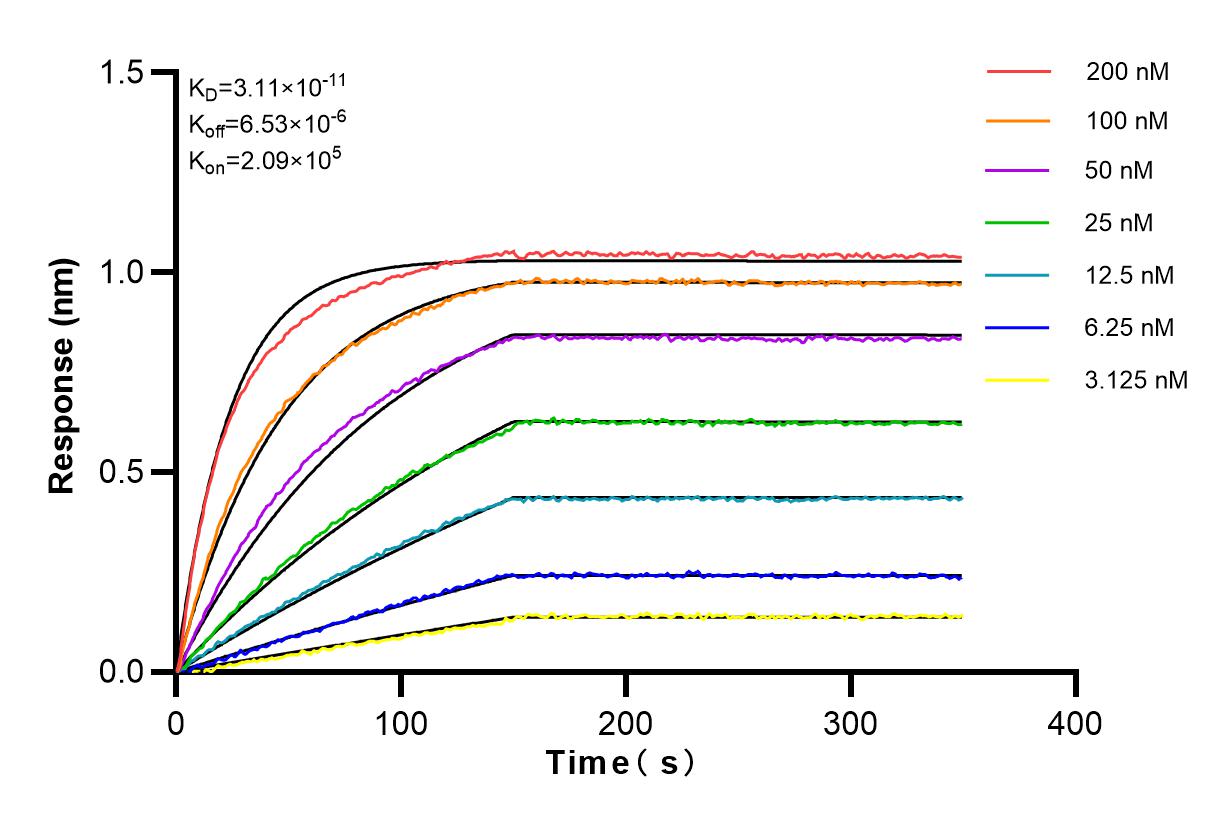Product Information
83169-5-PBS targets SMAD4 as part of a matched antibody pair:
MP00267-4: 83169-5-PBS capture and 83169-6-PBS detection (validated in Sandwich ELISA)
Unconjugated rabbit recombinant monoclonal antibody in PBS only (BSA and azide free) storage buffer at a concentration of 1 mg/mL, ready for conjugation. Created using Proteintech’s proprietary in-house recombinant technology. Recombinant production enables unrivalled batch-to-batch consistency, easy scale-up, and future security of supply.
This conjugation ready format makes antibodies ideal for use in many applications including: ELISAs, multiplex assays requiring matched pairs, mass cytometry, and multiplex imaging applications.Antibody use should be optimized by the end user for each application and assay.
| Tested Reactivity | human, mouse |
| Host / Isotype | Rabbit / IgG |
| Class | Recombinant |
| Type | Antibody |
| Immunogen |
CatNo: Ag0299 Product name: Recombinant human SMAD4 protein Source: e coli.-derived, PGEX-4T Tag: GST Domain: 13-227 aa of BC002379 Sequence: NDACLSIVHSLMCHRQGGESETFAKRAIESLVKKLKEKKDELDSLITAITTNGAHPSKCVTIQRTLDGRLQVAGRKGFPHVIYARLWRWPDLHKNELKHVKYCQYAFDLKCDSVCVNPYHYERVVSPGIDLSGLTLQSNAPSSMMVKDEYVHDFEGQPSLSTEGHSIQTIQHPPSNRASTETYSTPALLAPSESNATSTANFPNIPVASTSQPAS Predict reactive species |
| Full Name | SMAD family member 4 |
| Calculated Molecular Weight | 60 kDa |
| Observed Molecular Weight | 63-70 kDa |
| GenBank Accession Number | BC002379 |
| Gene Symbol | SMAD4 |
| Gene ID (NCBI) | 4089 |
| Conjugate | Unconjugated |
| Form | Liquid |
| Purification Method | Protein A purfication |
| UNIPROT ID | Q13485 |
| Storage Buffer | PBS only, pH 7.3. |
| Storage Conditions | Store at -80°C. |
Background Information
Mammalian homologs of the Drosophila Mad gene include Smad1, Smad2, Smad3, Smad4 (DPC4), Smad5, Smad6, Smad7 and Smad8. Smad1 and Smad5 are effectors of BMP2 and BMP4 function while Smad2 and Smad3 are involved in TGF and activin-mediated growth modulation. Smad4 has been shown to mediate all of the above activities through interaction with various Smad family members. Smad6 and Smad7 regulate the response to activin/ TGF signaling by interfering with TGF-mediated phosphorylation of other Smad family members.

